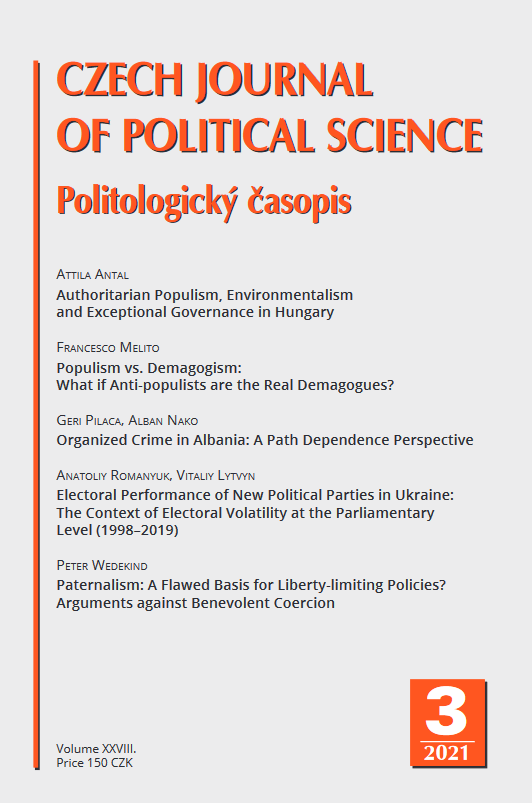Paternalism: A Flawed Basis for Liberty-limiting Policies?
Paternalism: A Flawed Basis for Liberty-limiting Policies?
Arguments against Benevolent Coercion
Author(s): Peter WedekindSubject(s): Social Sciences, Politics and society, Politics and Identity
Published by: Masarykova univerzita nakladatelství
Keywords: autonomy; benevolence; coercion; harm-principle; liberalism; liberty-limitations; paternalism; perfectionism; punishment; rationality
Summary/Abstract: This article discusses coercive paternalism, a concept of liberty-limitations that has gained significant attention in recent decades. In opposition to the libertarian type of paternalism proposed by the well-known ‘Nudgers’ Richard H. Thaler and Cass R. Sunstein (2008), Sarah Conly (2013) advocates coercive interventions in Against Autonomy: Justifying Coercive Paternalism. Her influential work serves as a basis for scrutinizing the validity of coercive paternalism’s presuppositions as well as the internal coherence of the concept. Following the fundamental groundwork of especially Joel Feinberg and Gerald Dworkin, arguments against coercive paternalism are evaluated. They include the reciprocal (rather than unilateral) relationship between the ‘present self’ and the ‘future self’ in the paternalist’s account, the questionable legitimacy of punishment for self-harming behaviour and of coercion in general, the challenges of so-called ‘perfectionism’ and slippery-slopes, as well as a misconception about the alleged lack of rationality that serves as a justification for coercive paternalism. The article concludes by suggesting that – given the flaws of the concept – it may be reasonable to favour soft paternalism à la John Stuart Mill based on the harm principle over Conly’s proposal for a more extensive form of coercive paternalism.
Journal: Politologický časopis - Czech Journal of Political Science
- Issue Year: XXVIII/2021
- Issue No: 3
- Page Range: 293-313
- Page Count: 20
- Language: English

